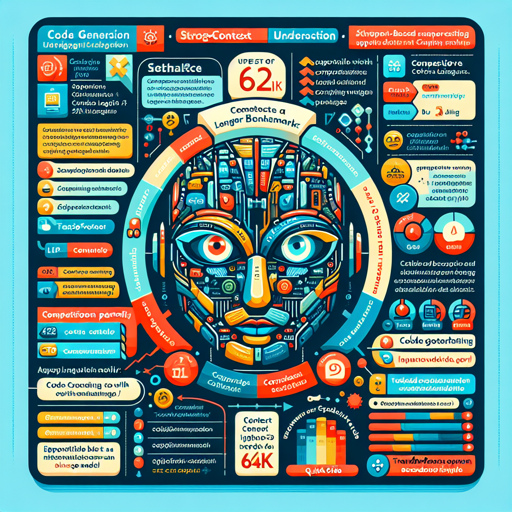If you’re venturing into the exciting world of coding with AI, you’re in for a treat with CodeQwen1.5-7B-Chat. This transformer-based decoder-only language model has remarkable capabilities, designed specifically for handling code-related tasks. In this guide, we’ll walk you through the setup, usage, and some troubleshooting tips to harness the full power of CodeQwen1.5 for your coding needs.
Introduction
CodeQwen1.5 is tailored for code generation and comprehension, boasting:
- Strong code generation capabilities.
- Competitiveness across various benchmarks.
- Support for long-context understanding with a context length of 64K tokens.
- Compatibility with 92 coding languages.
- Exceptional performance in tasks such as text-to-SQL and bug fixing.
For more details, please refer to our blog post and GitHub repo.
Model Details
CodeQwen1.5 is part of the Qwen1.5 series, trained on a massive dataset of 3 trillion tokens related to coding. The model integrates group query attention (GQA) for efficient inference, ensuring that even large contexts are handled gracefully.
Requirements
To effectively run CodeQwen1.5, ensure you have the latest version of the Hugging Face transformers library, specifically `transformers>=4.37.0`. If you use an outdated version, you might encounter the following error:
KeyError: 'qwen2'.Quickstart: Generating Code with CodeQwen1.5
Here’s a practical code snippet to get started with CodeQwen1.5 using the `apply_chat_template` function:
from transformers import AutoModelForCausalLM, AutoTokenizer
device = "cuda" # the device to load the model onto
model = AutoModelForCausalLM.from_pretrained(
"Qwen/CodeQwen1.5-7B-Chat",
torch_dtype="auto",
device_map="auto"
)
tokenizer = AutoTokenizer.from_pretrained("Qwen/CodeQwen1.5-7B-Chat")
prompt = "Write a quicksort algorithm in python."
messages = [
{"role": "system", "content": "You are a helpful assistant."},
{"role": "user", "content": prompt}
]
text = tokenizer.apply_chat_template(
messages,
tokenize=False,
add_generation_prompt=True
)
model_inputs = tokenizer([text], return_tensors="pt").to(device)
generated_ids = model.generate(
model_inputs.input_ids,
max_new_tokens=512
)
generated_ids = [
output_ids[len(input_ids):] for input_ids, output_ids in zip(model_inputs.input_ids, generated_ids)
]
response = tokenizer.batch_decode(generated_ids, skip_special_tokens=True)[0]
Imagine you’re trying to cook a dish using a well-laid-out recipe on your kitchen counter. The `prompt` is like your recipe’s main instruction, guiding the model (your chef) in creating a specific dish—in this case, a quicksort algorithm in Python. The `messages` represent the conversation format, setting the context of your interaction with the chef assistant. With each step, you guide the model to make sure it dishes out precisely what you need, just like you would oversee a skilled chef in a bustling kitchen.
Tips for Better Results
If you encounter unexpected code switching or other issues, adjust your approach by utilizing the provided hyper-parameters in `generation_config.json`. This will help you refine the model’s output and achieve more coherent results.
Troubleshooting
Sometimes, things don’t go as planned. Here are some troubleshooting tips:
- KeyError when loading model: Ensure you are using the right version of the Hugging Face transformers library. Update to `transformers>=4.37.0`.
- Model not generating expected output: Revisit your prompt or check your use of hyper-parameters in `generation_config.json`.
- Performance issue on large contexts: Consider reducing the context to improve processing speed.
For more insights, updates, or to collaborate on AI development projects, stay connected with fxis.ai.
Conclusion
With CodeQwen1.5-7B-Chat, diving into automatic code generation is not only accessible but also an exhilarating experience. It opens avenues for enhancing your coding workflow by leveraging AI to assist in various programming tasks. Remember, constant experimentation and optimization of your approach will lead to the best results.
At fxis.ai, we believe that such advancements are crucial for the future of AI, as they enable more comprehensive and effective solutions. Our team is continually exploring new methodologies to push the envelope in artificial intelligence, ensuring that our clients benefit from the latest technological innovations.

